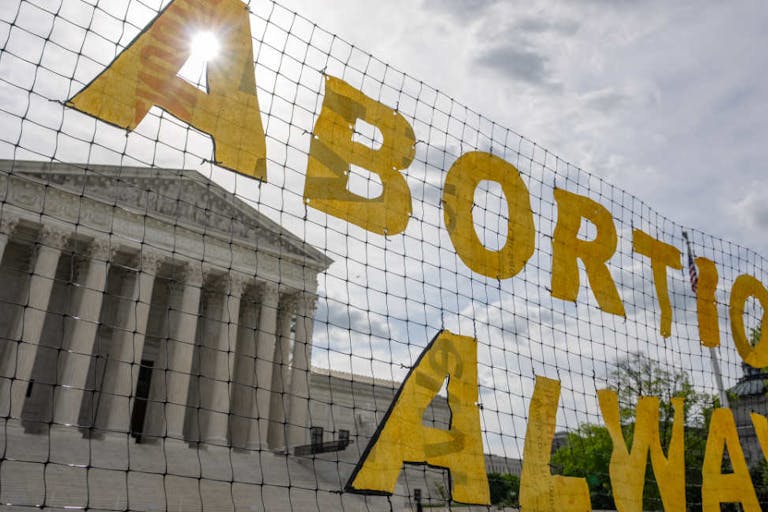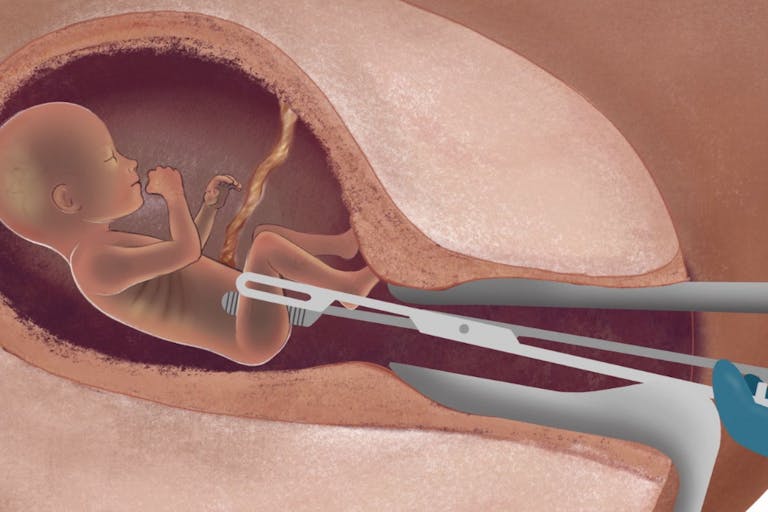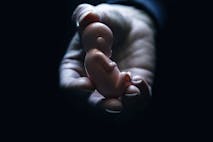
A growing number of Americans call themselves ‘pro-choice’ – but what’s really behind it?
Nancy Flanders
·
Woman who traveled thousands of miles for abortion joins lawsuit against Tennessee
A woman who chose to travel out of state for an abortion at about 20 weeks is joining the Center for Reproductive Rights’ lawsuit against the state of Tennessee. In an opinion piece for The Tennessean, she called it “cruel” that she was not able to kill her preborn daughter through abortion.
At 19 weeks, Allie Phillips brought her young daughter Adalie along with her to the anatomy scan of her preborn baby girl named Miley. During that scan, Phillips learned that her preborn daughter had a rare, congenital condition known as holoprosencephaly (HPE), as well as a two-chambered heart and issues with her kidney and bladder. Told there was no hope for her daughter’s survival, she was given two options: carry to term, knowing that it was very likely Miley would die before or at birth, or have an induced abortion, and ensure Miley died in the womb.
Phillips opted for an abortion, saying she didn’t want to deliver her daughter “just so I can say I held her” – but Tennessee has laws protecting preborn children from abortion. If she wanted an abortion, she would have to travel out of state.
“Tennessee’s politicians are passing cruel laws against something they know nothing about – medically essential abortions,” wrote Phillips. “I needed one, and it was traumatizing for me and my family that I had to leave Tennessee to get it. Tennesseans must be able to get the care they need at home.”
But induced abortions that directly and intentionally kill a child in the womb prior to delivery are not medically necessary. In fact, Phillips was given a choice to wait and deliver, or to abort her daughter. There was no immediate threat to Phillips’ life, but even if there were, Miley could have been delivered without first dismembering her through a D&E abortion or causing cardiac arrest with an induction abortion. In addition, preterm delivery due to a mother’s life-threatening medical condition is not an induced abortion and is allowed by law.

It’s important to understand that not every child who is expected to die at birth does. Little Fiona Grace was diagnosed with HPE at 20 weeks, along with an enlarged heart and missing brain tissue. Her mother’s doctors also said she would die in the womb or at birth, and recommended abortion. But when she was born, she shocked everyone and survived. She is now six years old, and as her mother said on Facebook, “she’s defied the odds at every turn.”
In the end, Miley died peacefully in the womb, which Phillips didn’t learn about until she had arrived at the New York City abortion facility that had been willing to abort her daughter.
Article continues below
Dear Reader,
In 2026, Live Action is heading straight where the battle is fiercest: college campuses.
We have a bold initiative to establish 100 Live Action campus chapters within the next year, and your partnership will make it a success!
Your support today will help train and equip young leaders, bring Live Action’s educational content into academic environments, host on-campus events and debates, and empower students to challenge the pro-abortion status quo with truth and compassion.
Invest in pro-life grassroots outreach and cultural formation with your DOUBLED year-end gift!
“Completely broken, I had to call Bryan and tell him over the phone that our daughter was gone,” said Phillips. “…I should never have had to leave home for humane health care – abortion care.” But there is nothing remotely humane about abortion. If her daughter had not died prior to the abortion, she would not have had a peaceful death.

During a D&E abortion, the most common procedure used in the second trimester, the abortionist uses a Sopher clamp to tear the arms and legs off of the child before crushing her skull. Her body is pulled out in pieces.
During an induction abortion, the child is killed when the abortionist inserts a needle into either her head or her heart to inject a drug that will cause her to go into cardiac arrest. The goal of this abortion is to deliver a stillborn but intact child; Phillips had seemingly sought to avoid a stillbirth by by seeking an abortion. Therefore, it is unclear what method, at such a late stage, might have been used.
“We risk having a stillborn or giving birth only for her to just die shortly after delivery,” she had previously said. “I don’t want to bring her into this world to suffer for an hour or two just so I can say I held her.”
Watching one’s child die is a difficult and tragic experience, and it is understandable that a parent would seek to avoid such grief. Yet, holding her daughter may have provided her with a bonding experience, allowed Miley to feel love, and given Phillips a sense of closure – if Miley had passed away at birth.
In addition, studies show that women who have abortions due to a fetal diagnosis are at a greater risk of emotional distress than those who carry their babies to term. Additional studies show that aborting a “wanted” baby due to a diagnosis can be a “traumatic event … which entails the risk of severe and complicated grieving.”
According to researchers, “Termination is not a shortcut through grief.”
Live Action News is pro-life news and commentary from a pro-life perspective.
Contact editor@liveaction.org for questions, corrections, or if you are seeking permission to reprint any Live Action News content.
Guest Articles: To submit a guest article to Live Action News, email editor@liveaction.org with an attached Word document of 800-1000 words. Please also attach any photos relevant to your submission if applicable. If your submission is accepted for publication, you will be notified within three weeks. Guest articles are not compensated (see our Open License Agreement). Thank you for your interest in Live Action News!

Nancy Flanders
·
Analysis
Cassy Cooke
·
Analysis
Cassy Cooke
·
Analysis
Cassy Cooke
·
Analysis
Cassy Cooke
·
Analysis
Nancy Flanders
·
Human Interest
Nancy Flanders
·
Politics
Nancy Flanders
·
Human Interest
Nancy Flanders
·
Politics
Nancy Flanders
·
Human Interest
Nancy Flanders
·